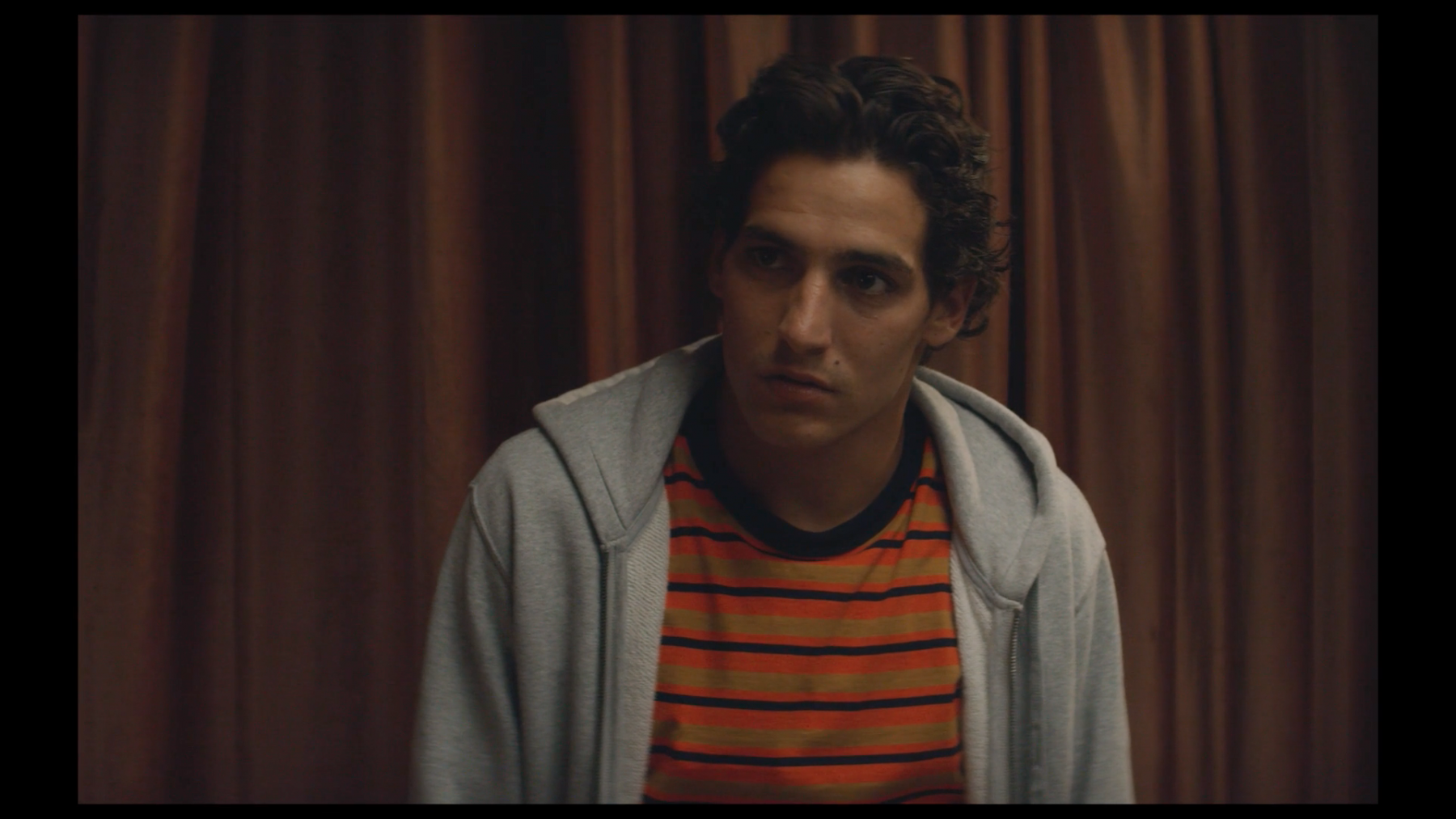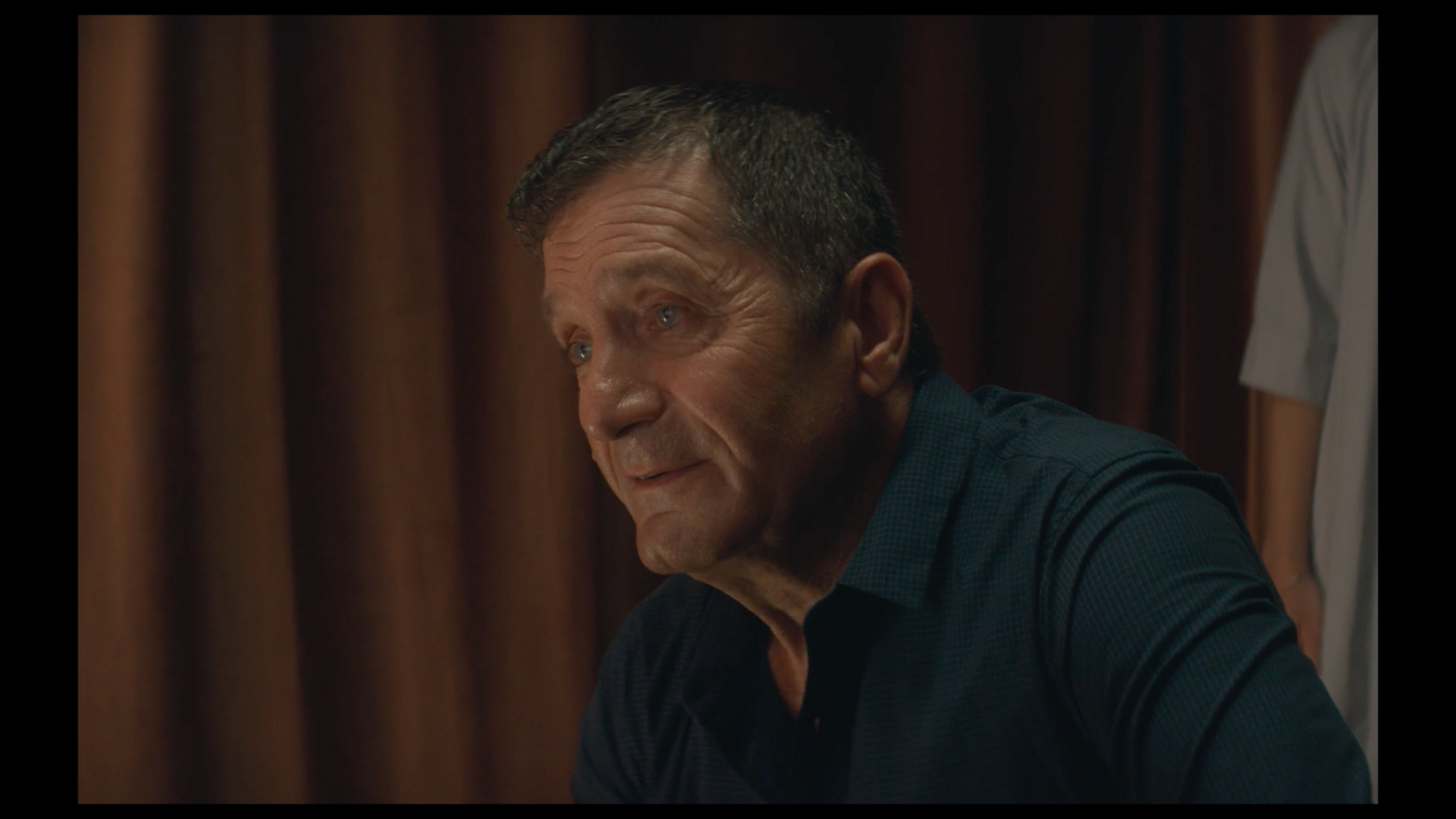Les Engloutis + SAIGON Linh & Édouard Caroline Guiela Nguyen

Les Engloutis
FR-2021, 30 Min. OmeU
Scénario et réalisation Caroline Guiela Nguyen
Script doctor Juliette Alexandre
Chef opérateur Augustin Barbaroux
Avec
Dan Artus, Ava Baya, Pascal Chazel, Sheila Coren Tissot, Anthony Costes, Sayyid El Alami, Galynette, Violette Garo, Adeline Guillot, Cédric Luste, Laure Mathis, Nino, Alexandre Pallu, Jean Ruimi, Esteban Sanchez, Michel W., Manon Worms, Léon Zongo
1ère assistant réalisatrice Claudia Lopez Lucia
2nde assistante réalisatrice Claire Calvi
1er assistante opérateur Jonas Gayraud
Cheffe décoratrice Alice Duchange
Assistant décorateur Jules Bouteleux
Chef costumier Benjamin Moreau
Ingénieur du son Gaël Eléon
Chef électricien Colin Lefebvre
Chef machiniste Pierre Marion-Andrès
Régisseur général Alexandre Kassis
Stagiaire régie Kenza Vannoni
Montage image Juliette Alexandre
Musiques originales Antoine Richard et Teddy Gauliat-Pitois
Production Les Films du Worso (Sylvie Pialat – Benoit Quainon) ; Les Hommes Approximatifs
SAIGON Linh & Édouard
FR-2021 16 Min. OmeU
Un court-métrage écrit, tourné en juin 2019 et réalisé par Caroline Guiela Nguyen
Un film Les FILMS DU WORSO (Sylvie Pialat – Benoît Quainon) et les Hommes Approximatifs
Avec
Dan Artus, Adeline Guillot, Phu Hau Nguyen, Thu Tô Thi Thanh, Anh Tran N Ghia, May Nith Thi, Hiep Tran N Ghia, Hoang Son Lê, Thi Truc Ly Huynh, Duy Nguyen, Nathalie Truong, Christine Nguyen…
Réalisatrice Caroline Guiela Nguyen
1ère assistante réalisatrice Marie Zoubian
2nde assistante réalisatrice Claire Calvi
Scripte et montage image Juliette Alexandre
Chef opérateur Raphael Rueb
Ingénieur du son Olivier Do Huu
Chef décoration Alice Duchange
Chef électricienne Marianne Lamour
Costumes Benjamin Moreau
Maquillage et coiffure Margaux Tricot, Juliette Hui, Ludovic Binet
Musiques originales Antoine Richard et Teddy Gauliat-Pitois
Production
Topshot Films ; Les Films du Worso ; Les Hommes Approximatifs
Avec le soutien de La Comédie de Valence – CDN Drôme-Ardèche, la Comédie – CDN de Reims, Théâtre Olympia – CDN de Tours
Escaping From Arles Prison Through Fiction
Caroline Guiela Nguyen is shooting a film in a high security prison with six inmates as actors
A low building surrounded by concrete walls of a nondescript colour stands almost invisibly in the countryside around the French city of Arles. The prison is one of six high security units in France built to house prisoners serving long to very long sentences or those deemed unlikely to ever make the transition back into society. On this July day, however, Arles Prison is playing host to some rather unusual visitors: a film crew made up of actors and technicians led by the young theatre director, Caroline Guiela Nguyen.
Once through the security checks at the entrance, the visitor is ushered down a maze of corridors with pastel-coloured walls. Doors are opened and locked shut behind us until finally we reach the prison gymnasium where a proper miniture film studio has been installed and something altogether new is being attempted, namely to shoot a fiction film with a cast including six inmates of the prison.
A long-term project
The adventure, unthinkable only a few years ago, is the fruit of many years of work that the theatre directors Joël Pommerat and Caroline Guiela Nguyen have pursued since 2013 with a group of inmates who were first initiated into the art of theatre by Jean Ruimi, a fifty-odd year old prisoner and stage buff, and have now bonded to form a veritable troupe. The workshops conducted by the two directors over the years have spawned several productions, notably a remarkable Marius, adapted by Pommerat from the eponymous play by Marcel Pagnon that was given a semi-public staging at Baumettes Prison, in Marseille, in October 2019. The plan was then for Caroline Guiela Nguyen to take the lead with a new theatre project, but she finally opted to make a film instead. The novelty lies not only in the form, but in her decision to make a film of fiction rather than a documentary. “All my work has been based on an exploration of real life through fiction and the powers of imagination,” she said. “I've always thought that it is our imaginations that are really political. I work with people who often go unseen on the stage or in the cinema, but I do not want to show them in documentary form.”
On top of that, as a theatre director whose reputation rocketed with the success of Saigon (2017), a production that has toured the world, she wanted to try her hand at film. “I experienced an urgent need to film these men up close, to record the moment when a new emotion suddenly stops them in their tracks. I need to be on their skin, their hands, to reach them where they themselves don't expect to be found and film them in ways that invert what the spectators expect to see. The last thing I wanted was for people to have in mind that we were in a prison. I wanted them to forget the walls.”
With her actors, six inmates of different ages and from diverse backgrounds who answer to the name of Pascal Chazel, Anthony Coste, Cédric Luste, Nino, Jean Ruimi and Michel W., she has woven one of these “reality-enhanced fictions” for which she is famed. Over the course of the workshops and improvisations she realised that at the heart of the inmates' condition was the question of time. “Time, for them, passes in a very specific manner. As if it were immobile, or frozen, while outside, time goes on without them. It's what we had to capture above all else. I try to keep in mind what the ethno-psychiatrist Tobie Nathan says about people who have suffered a traumatism, that we must position them as experts of their trauma rather than as victims of it.”
A Fantastical Tale
Caroline Guiela Nguyen has come up with a fantastical tale set in 2060. Forty years before, in 2021, a huge wave washed over the world, leading to the disappearance of half of all humanity. In 2060, the disappeared return, the same age as when they departed while everyone else has grown old. The
film plays out this painful reunion in a future society committed to working through the need for reconciliation.
The film is being produced by Sylvie Pialat, a stalwart of French arthouse cinema, and will be the first part of an ambitious European-wide theatre cycle entitled “Fraternités” which will progressively be presented at the Avignon Festival, the Odéon-Théâtre de l’Europe in Paris, the Schaubühne in Berlin and London's National Theatre. Provisionally entitled “Fraternity – A Fantastical Tale”, the film is due to be finished and edited by the start of 2021 in time to be projected at different festivals. Authorising a film shoot within the walls of the prison is a whole different ballgame for prison staff compared to the artisanal demands of theatre. Corinne Puglierini, the prison's director, has nevertheless given the project her full support. “A film project is much more challenging security wise,” she explained. “A lot more equipment and people have to be admitted inside the prison, which multiplies the security risks. We would never have set ourselves such a challenge had we not already had considerable experience of working with Joël Pommerat and Caroline Guiela Nguyen. Each party has had time to get to know each other, and now we have a solid relationship based on mutual trust.”
“Many beneficial effects”
Like her predecessor Christine Charbonnier, who got the project up and running, Ms Puglierini believes in the virtue of artistic practices in prison even if this means running up against resistance within the prison administration itself. “Based on the experience we have accumulated over the years, we can now see the many beneficial effects of conducting theatre projects on a long-term basis. Working in a group, the discipline needed to learn one's lines, getting into the habit of reading, of learning, the whole process has a calming influence on the participants, makes them more ready to listen to others and helps them manage their emotions. It gives a huge boost to their self-confidence and the image they have of themselves in relation to their families and the prison staff. It is also without doubt extremely helpful in preparing for the time when inmates leave the prison, which is always complicated in a high security unit like this one where sentences often run into tens of years.”
Filming in this context has meant that Caroline Guiela Nguyen has had to reduce her team to no more than eighteen people on any one day of shooting, and provide a list of equipment more than thirty pages long that encompasses everything from the most innocuous bolt to a mere pen. Her scenographer, Alice Duchange, has come up with the lightest, most modulable set possible, based on melamine sheets that can be draped or painted with frescos. Augustin Barbaroux, head cameraman, has whittled his equipment down to the bare necessities.
In the gymnasium heated to boiling point by an implacable July sun, the reality of prison life rapidly makes way for a fiction energised with fragments of the real. Cédric Luste, one of the six inmates taking part in the project, plays one of the “re-appeared” who is reunited with the woman he loved forty years before. He does the same take twenty, thirty times showing a remarkable degree of professionalism. On this particular day, he is performing opposite a professional actress who has trouble playing the scene, probably made ill at ease by the environment. The rawness of the emotions and lived experience is impressive. “The lockdown was particularly hard on us in prison,” admits Cédric Luste. “I didn't see my partner for five months. I put all that torment and sadness, the violence of my feelings into the character I'm playing.”
After spending the whole day filming and in spite of his tiredness, the heat and endless retakes, Cédric Luste looks radiant. The prison walls seem to have retreated outwards to a faraway place, before reality comes rushing back, but not in the same way for everyone. At the heart of the prison the paths split. The members of the film crew watch gravely as he makes his way alone down the corridor leading back to the cells, while they turn the other way, leading out into the fresh air and freedom.
Fabienne Darge for Le Monde
